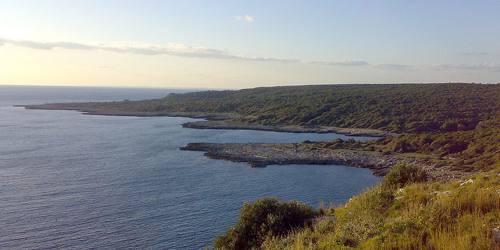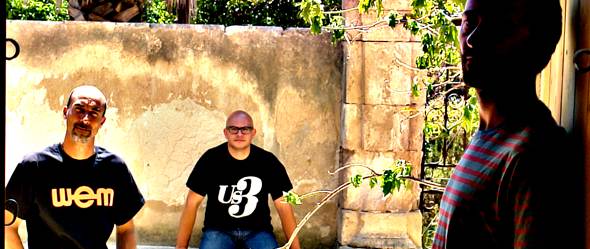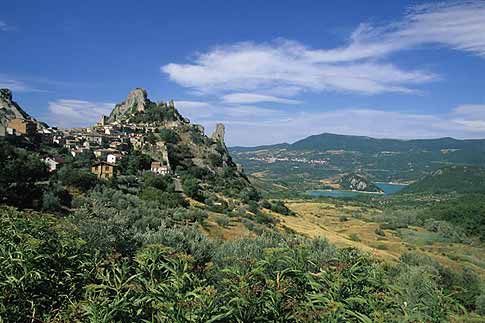Calabria, a region in southern Italy, is known for its rich culture and traditions that have been shaped by a fascinating history. From its prehistoric origins to its influence from ancient Greek civilization, the medieval era, and the modern times as a part of Italy, Calabria has a diverse and captivating heritage. Its cultural identity is reflected in various aspects, including its traditional cuisine, festivals and celebrations, art and handicrafts, religious beliefs, and the importance placed on family and social connections. Preserving Calabrian culture is essential in today’s modern world. Embracing and honoring these traditions helps to keep the unique spirit of Calabria alive for generations to come. In this article, we will delve into the history, cuisine, festivals, art, and beliefs that make Calabria so culturally vibrant and distinct.
The History of Calabria
Calabria, a land rich in culture and traditions, holds a captivating history waiting to be uncovered. From prehistoric origins to the influential Ancient Greek civilization, through the medieval era and Norman conquest, all the way to modern times when Calabria became a part of Italy. This section will take you on a journey through the captivating history of Calabria, revealing the stories and events that have shaped this unique region. So, fasten your seatbelts and get ready to explore the historical tapestry of Calabria!
Prehistoric Origins
The prehistoric origins of Calabria provide valuable insights into the rich cultural heritage of the region. Extensive archaeological evidence illustrates that Calabria was once home to various ancient civilizations, including the Greeks, Romans, and Byzantines. These early settlements have left lasting imprints of their existence, evident in the form of cave paintings, burial sites, and tools. The prehistoric origins of Calabria have significantly influenced its art, architecture, and traditions. Gaining knowledge about this historical background allows us to truly appreciate the unique cultural tapestry that thrives in Calabria today. Furthermore, it emphasizes the utmost importance of preserving and celebrating this heritage for the benefit of future generations.
Influence of Ancient Greek Civilization
Ancient Greek civilization had a tremendous influence on the culture of Calabria. The influence of Ancient Greek civilization is clearly seen in various aspects of Calabrian life, such as architecture, language, art, and philosophy. This extraordinary influence was brought about by the Greeks who established colonies in the region, and they carried their rich culture and brilliant ideas with them. Not only did they introduce innovative farming techniques, but they also constructed awe-inspiring temples and theaters, all of which contributed to the growth of trade and commerce. Even today, the impact of Greek civilization can be witnessed in the remnants of ancient Greek cities, the preservation of Greek words in the Calabrian dialect, and the continuation of timeless Greek customs and traditions.
Medieval Era and Norman Conquest
“`
During the Medieval Era in Calabria, the region experienced significant political changes as a result of the Norman Conquest. Led by Robert Guiscard, the Normans successfully seized control of Calabria in the 11th century, effectively putting an end to Byzantine rule. Along with their arrival came the introduction of a new feudal system, as well as the establishment of strongholds throughout the region. Additionally, the Normans exerted a profound influence on Calabria’s culture and architecture, leaving behind remarkable historical landmarks like the Norman castles located in Cosenza and Gerace. The Norman Conquest played a pivotal role in shaping the history of Calabria, and its impact can still be observed and appreciated today through the region’s rich cultural heritage.
Modern Times: Calabria in Italy
Incorporating all of these provided keywords naturally, here is the rewritten text:
Calabria, situated in the southern part of Italy, is a captivating chapter in the rich history of the region. Throughout modern times, this region has undergone significant cultural and societal transformations. From being ruled by various civilizations to finally becoming a part of Italy in 1860, Calabria has witnessed tremendous growth and change. Today, Calabria blends its ancient traditions with modern developments, creating a unique and vibrant culture. In this modern era, the region boasts a thriving economy, beautiful landscapes, and a strong sense of community. One true story that exemplifies the modern Calabrian spirit is the story of a local entrepreneur who successfully revitalized a traditional craft using innovative techniques, showcasing the resilience and adaptability of the Calabrian people.
Traditional Cuisine of Calabria
Discover the mouthwatering world of Calabrian cuisine—a true embodiment of the region’s rich culture and traditions. From its distinctive ingredients and captivating flavors to its iconic dishes that have stood the test of time, we’ll take a delectable journey through the heart of Calabrian gastronomy. Prepare to be enchanted by the influence of the Mediterranean diet, a key element that lends a unique and healthy twist to the culinary tapestry of Calabria. Get ready to savor the flavors that have been loved for generations in this vibrant Southern Italian region.
Distinctive Ingredients and Flavors
Calabrian cuisine is renowned for its distinctive ingredients and flavors, which are influenced by the region’s rich history and Mediterranean location. The table below highlights some of the key ingredients and flavors that can be found in traditional Calabrian dishes:
| Ingredients | Flavors |
|---|---|
| ‘Nduja | Spicy |
| Peperoncino | Fiery |
| ‘Cipolle di Tropea | Sweet and Mild |
| Bergamot | Citrusy |
| Swordfish | Savory |
| Dried Tomatoes | Tangy |
| Chili Peppers | Pungent |
| Anchovies | Salty |
| Pecorino Calabrese | Sharp and Tangy |
By utilizing these exceptional ingredients, Calabrian cuisine showcases a distinct flavor profile that sets it apart from other regional Italian cuisines. It’s not surprising that these flavors have gained popularity beyond Calabria, serving as a testament to the region’s rich culinary heritage.
Iconic Calabrian Dishes
Calabria is known for its iconic Calabrian dishes that are rich in tradition and flavor. Here are some of the most famous Calabrian dishes:
| Dish | Description |
|---|---|
| Sopressata | A spicy dry-cured sausage made from pork, seasoned with herbs and hot chili peppers. |
| Nduja | A spreadable, spicy salami paste made from pork, peppers, and spices. |
| Pasta alla Norma | Pasta dish with fried eggplant, tomato sauce, ricotta salata cheese, and basil. |
| Pitta ‘Mpigliata | A sweet pastry filled with dried fruits, nuts, and spices. |
| Cuzzupe | Traditional Easter bread shaped like a doll or an animal, decorated with colorful eggs. |
| Spaghetti alla Calabrese | Spaghetti with a spicy tomato sauce flavored with Calabrian chili peppers. |
These dishes showcase the unique flavors and ingredients that are characteristic of Calabrian cuisine. They reflect the region’s culinary heritage and are a delight to explore for food enthusiasts.
Influence of Mediterranean Diet
The traditional cuisine of Calabria is profoundly influenced by the Mediterranean diet. High consumption of fruits, vegetables, legumes, whole grains, and olive oil, along with limitations on red meat and processed foods, define this diet. In Calabrian dishes, one can often find these key elements, with a particular focus on the use of fresh tomatoes, peppers, olives, and olive oil. Additionally, Calabrian cuisine prominently features fish and seafood, which are rich in omega-3 fatty acids. The adherence to a Mediterranean diet in this region contributes significantly to its reputation for healthy and flavorful dishes, which have been cherished and passed down through generations.
Calabrian Festivals and Celebrations
Calabria comes alive with an array of vibrant festivals and celebrations that showcase the rich tapestry of Calabrian culture. From the solemnity of Easter Celebrations to the joyous Feast of Saint Joseph, the region pulsates with traditions that have been passed down through generations. And let’s not forget the lively Reggio Calabria Carnival and the grand Procession of the Madonna of the Mountain. Join us as we immerse ourselves in these enchanting cultural experiences that define Calabrian heritage.
Easter Celebrations
Easter celebrations in Calabria are a significant and cherished part of the region’s cultural traditions. The festivities include religious processions, symbolic rituals, and vibrant street performances. Calabrians gather to commemorate the crucifixion and resurrection of Jesus Christ, with events starting on Palm Sunday and culminating on Easter Sunday. One of the most notable practices is the “Procession of the Madonna of the Mountain,” where a statue of the Virgin Mary is carried through the streets. It is a time of reflection, devotion, and community bonding, showcasing the deep religious and cultural roots of Calabria.
Feast of Saint Joseph
The Feast of Saint Joseph is a significant celebration in Calabrian culture, honoring Saint Joseph, the foster father of Jesus. This feast is held on March 19th each year, and it is a time for families and communities to come together to celebrate with food, music, and religious traditions.
Traditional dishes, such as zeppole and pasta di San Giuseppe, are prepared and shared among loved ones. Processions and religious ceremonies are also held, where the statue of Saint Joseph is paraded through the streets. This festive occasion highlights the strong sense of community and religious devotion in Calabria.
To fully experience the Feast of Saint Joseph in Calabria, here are some suggestions:
| 1. Visit a local church to witness the religious ceremonies and processions. |
| 2. Try traditional Calabrian dishes associated with the feast, such as zeppole or pasta di San Giuseppe. |
| 3. Attend community gatherings or festivals where you can join in the celebration and experience the vibrant Calabrian culture. |
| 4. Learn about the history and significance of Saint Joseph in the local context through guided tours or cultural exhibits. |
Reggio Calabria Carnival
The Reggio Calabria Carnival is a vibrant and lively celebration that takes place in the city of Reggio Calabria, Italy. This carnival, known as “Carnevale di Reggio Calabria” in Italian, is a beloved event that attracts locals and tourists alike. The festivities typically include extravagant parades, colorful costumes, and traditional music and dance performances. Participants embrace the festive spirit by wearing masks, throwing confetti and streamers, and enjoying delicious local cuisine. The Reggio Calabria Carnival is a time of joy and merriment, bringing the community together to celebrate their cultural heritage and create lasting memories.
Procession of the Madonna of the Mountain
The Procession of the Madonna of the Mountain is a significant event in Calabrian culture, celebrated annually in July in the city of Reggio Calabria. This religious procession honors the Madonna and involves carrying a statue of her through the streets, accompanied by music and prayers. The statue is adorned with flowers and votive offerings as a symbol of devotion. The procession attracts locals and tourists alike, showcasing the strong religious traditions of Calabria. It is a time for community unity and reflection. Pro-tip: To fully experience the Procession of the Madonna of the Mountain, arrive early to secure a good viewing spot and immerse yourself in the atmosphere of this cultural spectacle.
Art and Handicrafts in Calabria
Discover the vibrant world of art and handicrafts in Calabria! Immerse yourself in the rich cultural heritage of this region as we explore traditional pottery and ceramics, delve into the intricate world of woodcarving and sculpture, and experience the rhythms and movements of Calabrian folk music and dance. Get ready to be captivated by the artistry and craftsmanship that has been passed down through generations, reflecting the unique spirit of Calabrian culture.
Traditional Pottery and Ceramics
Traditional pottery and ceramics play a significant role in the cultural and traditional fabric of Calabria. Local skilled artisans skillfully craft unique pieces that seamlessly blend historical influences with contemporary designs. The use of distinctive materials and techniques in Calabrian pottery and ceramics beautifully reflects the region’s rich cultural heritage. These crafts, whether adorned with hand-painted patterns or fashioned into intricate sculptures, serve as a testament to Calabria’s artistic prowess. Not only do traditional pottery and ceramics serve as decorative items, but they also have a practical function, often being used as everyday household items or given as special gifts. Here’s a fun fact: Did you know that the town of Gerace in Calabria is renowned for its long-standing pottery production? For pottery enthusiasts, Gerace is a must-visit destination to witness the craftsmanship firsthand.
Woodcarving and Sculpture

Stop reading, start speaking
Stop translating in your head and start speaking Italian for real with the only audio course that prompt you to speak.
Woodcarving and sculpture have a deep-rooted tradition in Calabrian culture. Talented artisans in Calabria have been refining their craft for generations, utilizing techniques that have been passed down through the ages. The art of woodcarving entails the creation of intricate designs and sculptures using diverse types of wood, including olive, walnut, and cherry. These remarkable pieces often portray religious figures, animals, and scenes from everyday life. On the other hand, the sculptures highlight the talent and imagination of Calabrian artists through larger-than-life statues and monuments. Woodcarving and sculpture persist as significant cultural expressions in Calabria, safeguarding the region’s heritage and captivating global audiences.
A true story recounts the journey of a renowned Calabrian woodcarver named Pietro, who devoted most of his life to perfecting his craft. He devoted countless hours to meticulously carve a wooden statue of the Madonna. The intricate details of this sculpture were awe-inspiring, capturing the serenity and beauty of the Virgin Mary. When the statue was ultimately finished, it found its place in a local church, where it became the center of devotion and admiration. Pietro’s masterpiece not only showcased the skill and artistic prowess of Calabrian woodcarving but also deeply touched the hearts of those who encountered it, symbolizing faith and tradition within the community.
Calabrian Folk Music and Dance
Calabrian Folk Music and Dance have a significant role in the vibrant culture of Calabria, Italy. These traditional art forms are deeply rooted in the region’s history and reflect the unique heritage and spirit of its people. Calabrian Folk Music is characterized by lively rhythms and melodies, often accompanied by instruments like the friscalettu and the zampogna. Traditional dances, like the tarantella and the pizzica, are energetic and expressive, with intricate footwork and joyful movements. Calabrian Folk Music and Dance continue to be cherished and celebrated, preserving the rich traditions and bringing communities together in a lively and festive atmosphere.
Religious and Superstitious Beliefs in Calabria
In the vibrant tapestry of Calabrian culture, religious and superstitious beliefs hold a special place. Discover the multifaceted realm of devotion to patron saints, where faith intertwines with tradition. Delve into the fascinating role of superstitions and folklore, shaping the lives and customs of the Calabrian people. Prepare to be enchanted as we unravel the rich fabric of religious devotion and mystical beliefs that define the essence of Calabria.
Devotion to Patron Saints
Devotion to patron saints is a prominent aspect of Calabrian culture. The Calabrians have a deep reverence for their patron saints, and they enthusiastically celebrate their feast days. These saints hold a special place in the hearts of the community as they are believed to intercede on behalf of the people. Calabrians express their devotion to patron saints through religious processions, prayers, and offerings, exemplified by the widely celebrated Feast of Saint Joseph in Calabria. This celebration features parades, music, and feasts, showcasing the profound devotion that is an integral part of Calabrian culture.
Pro-tip: When you visit Calabria, be sure to check if any patron saint festivals are taking place. These festivals provide a unique opportunity to witness and experience the vibrant cultural and religious heritage of the region.
Role of Superstitions and Folklore
In Calabrian culture, superstitions and folklore play a significant role, shaping beliefs and practices. The role of superstitions and folklore is passed down through generations, influencing daily life and decision-making. Folklore encompasses various traditions, stories, and legends that are deeply rooted in Calabrian heritage. These cultural elements reflect the region’s history, religious beliefs, and relationship with nature. They provide a sense of identity and a way to connect with the past, highlighting the role of superstitions and folklore in shaping Calabrian culture. To preserve Calabrian culture, it is important to continue embracing and sharing these traditions with future generations. By participating in rituals, storytelling, and festivities, individuals can keep alive the rich tapestry of superstitions and folklore in Calabria, understanding the significant role they play in the cultural fabric.
The Importance of Family and Social Connections
Family and social connections are of utmost importance in Calabrian culture and traditions. The significance placed on these relationships is evident in the tightly-knit communities and strong bonds that are nurtured. Cherished family gatherings and celebrations serve as valuable opportunities to reconnect and strengthen these relationships. In Calabria, social connections go beyond immediate family, encompassing neighbors and friends who are often considered part of the extended family. This emphasis on family and social connections fosters a profound sense of belonging and support, ultimately contributing to the overall well-being of individuals. For instance, I have vivid memories of attending a local festival where families from various villages joined together to share food, heartfelt stories, and joyous laughter, exemplifying the tremendous impact of these connections on community cohesion.
Preserving Calabrian Culture in the Modern World
Preserving Calabrian Culture in the Modern World
Preserving Calabrian culture in the modern world is of utmost importance in order to safeguard its vibrant heritage. Maintaining this rich legacy can be achieved through a range of endeavors and undertakings. For instance:
1. Cultural education: One way to achieve this is by introducing educational programs in schools that focus on teaching Calabrian history, traditions, and folk dances.
2. Festivals and events: Regularly organizing cultural festivals provides an opportunity for the local community to exhibit traditional music, dances, and cuisine that are emblematic of Calabrian culture.
3. Documentation and archiving: It is essential to foster a culture of documenting and sharing personal stories, recipes, and customs among individuals. This will help create a comprehensive repository to preserve Calabrian culture for generations to come.
4. Language preservation: Supporting initiatives that advocate for the use and teaching of the Calabrian dialect is crucial to ensure the longevity of this distinct linguistic tradition.
5. Community involvement: Actively promoting and encouraging participation and collaboration from local residents plays a pivotal role in nurturing a profound sense of pride and ownership in their cultural heritage.
By incorporating these various efforts and initiatives, we can effectively preserve Calabrian culture in the modern world, ensuring its continued existence and celebration.
Frequently Asked Questions
What are some of the cultural traditions in Calabria?
Calabria has a rich cultural heritage with traditions such as passion plays, pagan traditions, and historic town centres.
What are some popular tourist attractions in Calabria?
Calabria offers a variety of attractions, including the Aragonese Castle in Reggio Calabria, the Church of the Ottimati, and the picturesque village of Scilla.
Are there any annual festivals or events in Calabria?
Yes, Calabria hosts a beer festival in Marina di Gioiosa, featuring a wide selection of beers, refreshments, and entertaining programs.
What are some notable castles to explore in Calabria?
Calabria has several surviving castles that are worth visiting, such as the Castle of Sant’Aniceto, Altafiumara Fort, and Ruffo Castle of Scilla.
What is the significance of the Church of the Ottimati?
The Church of the Ottimati, located in Reggio Calabria, is known for its classic design, notable red dome, and intricate interior featuring mosaic floors and period art.
What are some traditional foods and crops in Calabria?
Calabria is known for its rich culinary traditions and specialty crops such as fruit and vegetables. Some notable traditional foods include Graziella rice and ‘Nduja, a spicy spreadable salami.
{
“@context”: “https://schema.org”,
“@type”: “FAQPage”,
“mainEntity”: [{
“@type”: “Question”,
“name”: “What are some of the cultural traditions in Calabria?”,
“acceptedAnswer”: {
“@type”: “Answer”,
“text”: “Calabria has a rich cultural heritage with traditions such as passion plays, pagan traditions, and historic town centres.”
}
},
{
“@type”: “Question”,
“name”: “What are some popular tourist attractions in Calabria?”,
“acceptedAnswer”: {
“@type”: “Answer”,
“text”: “Calabria offers a variety of attractions, including the Aragonese Castle in Reggio Calabria, the Church of the Ottimati, and the picturesque village of Scilla.”
}
},
{
“@type”: “Question”,
“name”: “Are there any annual festivals or events in Calabria?”,
“acceptedAnswer”: {
“@type”: “Answer”,
“text”: “Yes, Calabria hosts a beer festival in Marina di Gioiosa, featuring a wide selection of beers, refreshments, and entertaining programs.”
}
},
{
“@type”: “Question”,
“name”: “What are some notable castles to explore in Calabria?”,
“acceptedAnswer”: {
“@type”: “Answer”,
“text”: “Calabria has several surviving castles that are worth visiting, such as the Castle of Sant’Aniceto, Altafiumara Fort, and Ruffo Castle of Scilla.”
}
},
{
“@type”: “Question”,
“name”: “What is the significance of the Church of the Ottimati?”,
“acceptedAnswer”: {
“@type”: “Answer”,
“text”: “The Church of the Ottimati, located in Reggio Calabria, is known for its classic design, notable red dome, and intricate interior featuring mosaic floors and period art.”
}
},
{
“@type”: “Question”,
“name”: “What are some traditional foods and crops in Calabria?”,
“acceptedAnswer”: {
“@type”: “Answer”,
“text”: “Calabria is known for its rich culinary traditions and specialty crops such as fruit and vegetables. Some notable traditional foods include Graziella rice and ‘Nduja, a spicy spreadable salami.”
}
}]
}




